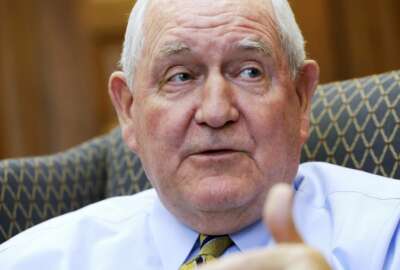

The backlash to plans to reduce teleworking in some government offices is being met with resistance from other workers who say that teleworking has lots of...
After the Agriculture Department’s decision to ratchet-back its massive teleworking program (from four days per week to a maximum of four days per month) stuff hit the fan. Workers protested. Unions said productivity gains would be lost. And morale would suffer. That millennials would abandon their government jobs. The media (at least in the Washington area) predicted that returning tens of thousands to the roads each day would make our horrible rush hours even horribler!
Or not.
After checking out yesterday’s column several readers said hold on a minute. They said there was life—and productivity—before widespread teleworking. And there is something to be said—as in the wisdom of the crowd—in interacting with coworkers at the office rather than operating in isolation or with shows like The Thing, The Live, The Talk providing background noise. For example, Mike M. writes:
I am astonished at the high level of praise accorded to the concept of telework for federal employees. I worked for the General Services Administration’s Public Buildings Service as the Obama Administration policy of ‘reducing the federal footprint’ went into effect and witnessed first hand how much employee resistance we encountered on the part of many federal agencies and how draconian the telework policies could be. Please bear with me as I describe how the ‘system’ works.
First and foremost, I question how new, young employees of federal agencies will ever be able to bond with their fellow workers and develop loyalty to their agency when they do not have assigned desks, thereby resulting in their being adjacent to different fellow workers on most days, and they are encouraged to spend two or more days a week working outside of the office. Given that 40 percent of all federal employees, being Baby Boomers, are eligible for retirement, large numbers of new federal workers are on the horizon, making this issue even more important.
Second, full blown telework involves policies that are onerous for employees. One has no assigned desk, and there are not as many desks as there are workers, so there is a daily or weekly scramble to secure a desk. One cannot settle in to a desk and customize it with mementos and personal touches, except for whatever can be cleared away at the end of the day and stored in a locker. One does not have a telephone unit on the desk, because this desk will be used by many people and the earpiece could contain one’s germs. Instead, use of VOIP is required, with earphones so adjacent workers are not bothered by the caller’s voice. Long conversations at one’s desk are discouraged, instead one should go to a private room for that purpose. One does not have a computer terminal at the desk, instead being required to use a laptop. Finally, one cannot eat lunch at the desk, because this would leave crumbs and debris behind that would bother succeeding users.
Finally, while this may have changed since I retired three years ago, agencies are very irresponsible in the way they implement telework. We would meet with agencies requiring replacement space and tell them they had to implement telework, at the behest of both the Office of Management and Budget and the GSA authorizing committees in Congress. We warned them that it was essential for them to work with their employees to gain acceptance of the concept before it was implemented. They did not do so, instead merely telling their workers that they had to implement telework because GSA was making them do so.
I hope in the future that your news service provides more balanced coverage of this issue.
Mike McGill
Watermelon is 92% water.
Source: Watermelon.org
Copyright © 2025 Federal News Network. All rights reserved. This website is not intended for users located within the European Economic Area.
Mike Causey is senior correspondent for Federal News Network and writes his daily Federal Report column on federal employees’ pay, benefits and retirement.
Follow @mcauseyWFED

